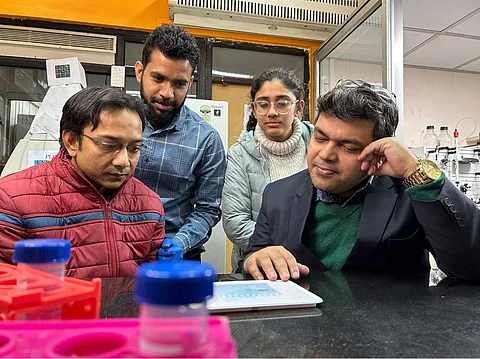

The Indian Institute of Technology (IIT) Kanpur achieved a breakthrough in biomedical research, with their study of G protein-coupled receptors (GPCRs) and chemokine receptor D6, shedding new light on the potential treatment of cancer and brain disorders such as Alzheimer’s disease, Parkinson’s disease and schizophrenia, stated a press release from the institute.
The researchers visualised the atomic details of the receptors. The information from this major advance opens up the possibility of designing new drug-like molecules to modulate these receptors under disease conditions. This landmark work has been recognised internationally with its publication in the prestigious international journal, Science.
Prof S Ganesh, Director, IIT Kanpur said, "The path-breaking research opens the doors to a new era in targeted medicine that can deliver solutions for cancer and neurological conditions for millions across the world. These diseases, which cause immense suffering and economic burden, could see a new era of effective treatment developed based on these findings!"
This collaborative effort, involving international researchers not only enhances the understanding of complex diseases but also cements India's position as a leader in innovative biomedical research and highlights IIT Kanpur's commitment to addressing some of the most pressing health challenges.
The findings of the new research from IIT Kanpur will help in a greater understanding of the working of these receptors and lead to the development of new therapeutic approaches and targeted treatments for conditions such as Alzheimer's, which affects over 50 million people worldwide, and cancer, responsible for over 10 million deaths annually.
